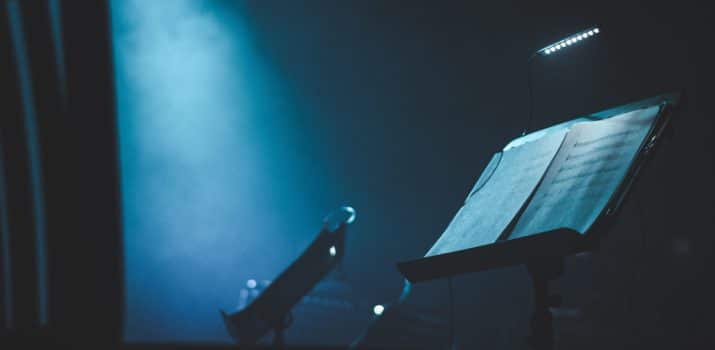From sign to sound (3/6): Sviatoslav Richter, 3,600 concerts in the service of composers


Discover the third episode in our series From Sign to Sound, dedicated to the art of interpretation. In the spotlight this time, one of the most famous pianists, who died 10 years ago: Sviatoslav Richter.
“The performer is really an executor, having to reproduce the composer’s intentions to the letter; he must add nothing that is not already in the work. If he is talented, he allows us to glimpse the truth of the work, which is in itself an element of the genius reflected in him; he must not dominate the music, but should dissolve into it.”
Sviatoslav Richter’s interpretative approach is clear, as explained above. And his fidelity to the musical text and his humility have enabled the Ukrainian-born pianist to bring a particular intensity to each composer he has interpreted. Bach, Haydn, Beethoven, Chopin, Debussy, Schubert, Liszt, Ravel, Rachmaninov, Prokofiev – his repertoire spans the entire spectrum of piano literature.
55 years of career, 833 works performed and more than 600 lieder, 3’600 concerts, more than 2’250 hours of music recorded live during concerts. Sviatoslav Richter is undoubtedly the spokesman for piano music. Yet his first passion is opera. Privately, he played operas by heart all his life. At the age of fifteen (he was born on March 20, 1915), thanks to his incredible deciphering skills, he was hired as a répétiteur at the Odessa Opera. Three years later, he even became a substitute conductor. He taught himself to play the piano, and in 1934 gave his first recital devoted to the music of Chopin. It was only in 1937 that he began his academic piano training, introducing himself to Heinrich Neuhaus, one of the most renowned Soviet pianists of the time. Conquered by the young man’s genius, Neuhaus immediately accepted him into his advanced piano class at the Moscow Conservatory. Prokofiev was also quick to notice him, and asked him to perform his Fifth Concerto under his baton. The work was a triumph. And a friendship was forged. The year was 1941, and this success launched the pianist on the path to a resounding career. By 1960, having finally received permission to play outside the Soviet empire, his career had gone global.
Sviatoslav Richter also devoted himself passionately to chamber music. His collaborations with cellist Mstislav Rostropovitch, violinist David Oïstrakh, and the Borodin Quartet will go down in history. Not to mention his many Lieder recitals with singers such as Nina Dorliak, his partner, and Dietrich Fischer-Dieskau.
Italian critic Piero Rattalino asserted that the only pianists comparable to Richter in the history of the piano were Franz Liszt and Ferruccio Busoni. Glenn Gould, meanwhile, considered Richter “one of the most powerful communicators the music world has produced in our time”.
Sviatoslav Richter becomes a legend.
See and hear:
Medici.tv offers you a biography of Sviatoslav Richter, Bruno Monsaingeon’s documentary on the pianist, as well as concerts and other documentaries. If you’re away from the BCUL, UNIL or HEP premises, log on to the Medici.tv platform using your Renouvaud reader’s card number and password.
The dazzling debut of Sviatoslav Richter, RTS.
Follow us on the Blog and discover the next article, on November 28: Barbara.